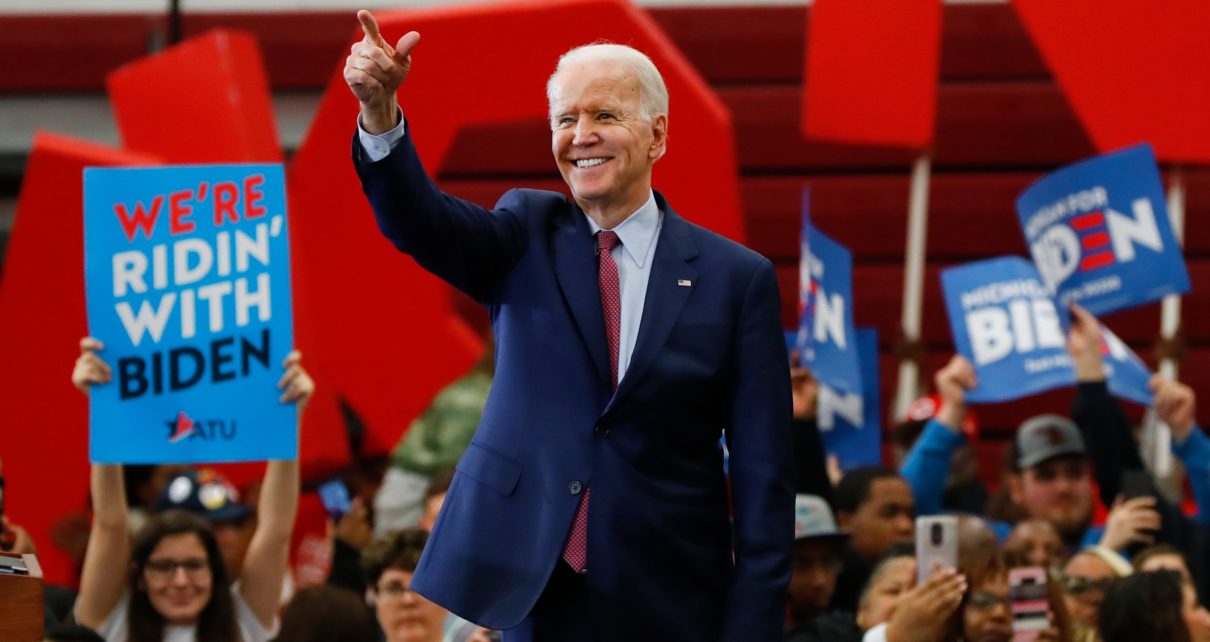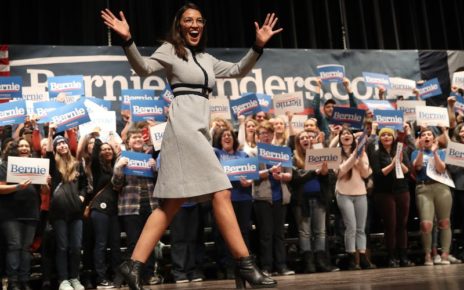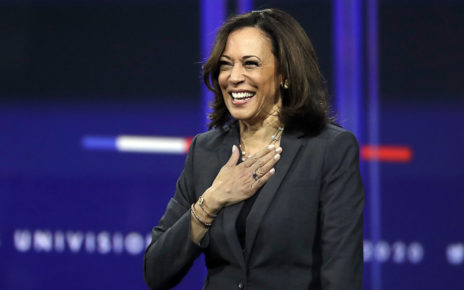Biden stays in the driver’s seat, coronavirus changes our elections and other takeaways from Tuesday’s vote
WASHINGTON – It was a night of early wins for Joe Biden.
Biden swept all three primaries Tuesday night against Sen. Bernie Sanders, who was already trailing the former vice president in delegates.
Arizona, Illinois and Florida all held primaries Tuesday, while Ohio, which was supposed to hold a primary Tuesday, postponed it due to the coronavirus pandemic.
Here are some takeaways for Tuesday’s primaries:
Biden is well on his way to being the presumptive Democratic nominee
As several of the television networks noted Tuesday night: the primary maps were lit up “Biden blue.”
Biden won every county in Florida, as well as nearly every county in Illinois, similar to his dominating wins in Michigan and Missouri one week ago. All three races Tuesday were called less than an hour after polls closed.
He again widened his lead in delegates, and the map and math make it nearly impossible for Sanders to catch up.
The former vice president has more than 1,100 delegates – more than half of what is needed to clinch the nomination – while Sanders trails at a bit over 800. Sanders would need to win several of the upcoming primaries by large margins to remain competitive.
Biden’s big night came after sweeping the South and winning 10 states total on Super Tuesday and winning in all but one of the six states that held contests on March 10.
And Biden’s wins Tuesday were blowouts. In Florida, he was projected as the winner right as polls closed at 8 p.m. ET, when he led Sanders by nearly 40 percentage points. In contrast, Sanders lost Florida to Hillary Clinton in 2016 by about 30 percentage points.
In Illinois, Biden was projected as the winner less than 30 minutes after polls closed. In 2016, the race in Illinois was close, with Clinton at 50% while Sanders was at 48%. But the margin between Biden and Sanders was much greater, with nearly 90% of the state reporting, Biden led 59% to Sanders’ 36%.
“Joe Biden is running the table,” host John King said on CNN.
Coronavirus is changing our elections
Voters in three states participated in primaries Tuesday night, but one state was noticeably absent: Ohio, which postponed its presidential primary because of concerns over the spread of coronavirus.
With recommendations for in-person gatherings now at a limit of 10, the Ohio governor said in-person polling locations would pose a health risk and the state was thrown into a last-minute legal battle that resulted in polls closing before they even opened.
As some states with upcoming primaries postponing elections, the Democratic National Committee urged states to expand vote-by-mail to all registered voters and extend voting times rather than postpone.
The closure of many public spaces had some wondering whether elections in Arizona, Florida and Illinois should go forward, but the polls remained open Tuesday. Some counties reported poll workers were staying home. And locations had to plan for how to handle long lines, high numbers of voters in a room at once and the repeated touching of surfaces in voting booths – all issues states will need to consider going forward if they are to hold in-person voting.
More:As coronavirus pandemic delays 2020 primaries, is it time to worry about the November election?
In Chicago, a number of precincts went to court to stay open an extra hour to combat low turnout due to coronavirus, and early voting broke records there. Florida’s secretary of state said just one precinct opened voting late due to coronavirus concerns, and others in Palm Beach County had “some challenges.”
And some voters in all states voting Tuesday experienced confusion due to a change in location of some precincts. Many were moved away from senior care centers to protect the elderly. Others closed entirely in some locations due to a shortage of workers.
The majority of Tuesday states’ primary voters put their trust in Biden over Sanders at dealing with a crisis, according to NBC News’ reporting on a primary poll that took the place of traditional exit polling. Exit polling was foregone to limit person-to-person contact.
AP VoteCast data also showed that about four in 10 voters in Florida’s Democratic primary expressed concern that they or a relative would contract the virus, and almost half named health care as the No. 1 issue facing the country. A majority also thought Biden could handle health care better than Sanders. In Illinois, voters were about split on their view of the candidates’ ability to tackle health care.
Sanders didn’t get a life raft Tuesday and faces calls from some to exit race
Just three weeks ago, Sanders was seen as the national frontrunner, having nearly won Iowa, then winning New Hampshire and Nevada.
But a lot has changed in three weeks. Now, he’s trailing Biden by hundreds of delegates and has faced calls from some Democrats to exit the race.
“With no path to secure the nomination, @BernieSanders should drop out,” said Bakari Sellers, a former Democratic lawmaker in South Carolina and CNN commentator.Getting beat by 10pts+ (I’m being generous) and getting swept isn’t a path to winning anything.”
Sanders lost all three states Tuesday night, he won only one (North Dakota) last Tuesday, and took four out of 14 states on Super Tuesday.
Throughout the campaign, Sanders touted his ability to bring out new voters to participate in the election and power his win. But with turnout up before the coronavirus pandemic, Sanders’ prediction didn’t pan out. Younger voters have not turned out in the numbers he needs to close the gap with Biden.
A key demographic that Sanders has relied on, Latino voters, also did not help carry Sanders to victory this time. Latinos, who are not a monolithic voting bloc, did not turn to Sanders in Florida or Arizona. Biden won more Latino vote in those states than Sanders did.
Source: Election 2020: Joe Biden sweeps three states as coronavirus changes voting





